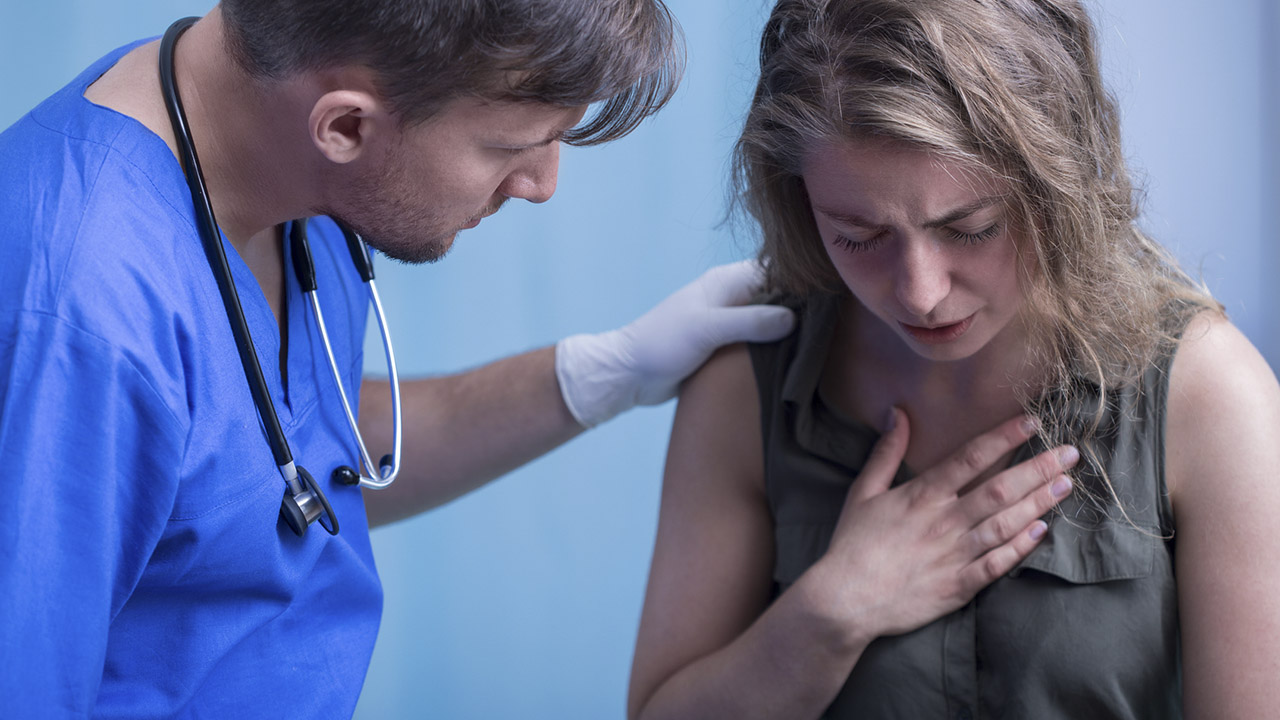 Photographee.eu/fotolia
Photographee.eu/fotolia
Feverish flushed skin. Hot one minute and chilled the next. Sweating accompanied by mild nausea. Palpitations or racing heart. This list of symptoms sounds like the flu but if you are a woman over 40, you just may be experiencing hot flashes.
There are a number of reasons why women might not communicate their symptoms to their doctor.
Confusion With Other Conditions
Hot flash symptoms are “nonspecific,” meaning they can mimic other conditions such as flu or heart problems. I know of one woman who actually called 911 believing she was having a heart attack when she had her first severe hot flash. (About one-third of women experience chest pressure and or pain, which can feel like a heart attack, during a hot flash. The symptoms are not life threatening, but the anxiety and fear that come with it are very real.)
Denial
It can be difficult to confront the end of childbearing years or the irrefutable evidence of aging heralded by the menopause transition. It’s important to know that we can live vibrant, active lives during and after menopause.
Embarrassment
Hot flashes ARE embarrassing at times. Sweating profusely and rapidly discarding layers of clothing can occur at the most inconvenient of times, such as social or work situations. We may prefer to ignore them, rather than bring them up to anyone, including our physician. Even the act of talking to our physician can cause some women discomfort, but it shouldn’t. All women will eventually experience menopause, and hot flashes are not uncommon – there’s no reason you should hesitate to bring up your symptoms to your doctor.
Confusion and Fear About Hormone Treatments
Widespread confusion and fear exist about using hormone therapy for menopause-related symptoms. To counter the confusion and fear, let us give you some facts:
- Women who have had a hysterectomy and receive estrogen-only therapy actually have a reduced risk of developing breast cancer.
- Even women who have the BRCA genes, which predispose to developing breast cancer, show no increased risk if they receive estrogen-only or estrogen plus progestogen therapy.
- If hot flashes are frequent or severe, they do pose a health hazard since women with untreated hot flashes show an increased risk for hypertension and cardiovascular disease.
- Delaying treatment for hot flashes is not a good idea as findings show that the sooner they are brought under control, the better the long-term health results.
If you are over 40 and suffering what may be hot flashes, here are ways to help yourself and your physician come up with a treatment plan.
- Keep a symptom diary. Note what you were doing, eating, or feeling just before the hot flash. This can help identify triggers for your individual hot flashes., Alcohol, hot liquids, caffeine, tight clothing, and stress are recognized hot flash triggers. Note the duration and intensity of each episode (mild, moderate, or severe.) This will help determine what type of treatment your doctor may suggest.
- Ask your MD to evaluate you (your history, medical examination, a smear of vaginal cells, hormone testing are all options) to find out if indeed you are in perimenopause or menopause. Even if you are still getting periods, you may be perimenopausal and experience hot flashes.
- Discuss treatment alternatives. Ask about the effectiveness, benefits, and risks of nonhormonal and herbal remedies as well as hormone therapy based on your personal and family medical history.
- In addition, ask your physician about dietary and lifestyle modifications that might diminish hot flash symptoms.
Hot flashes can be debilitating and disruptive to our daily lives, but we can take steps to relieve them. The menopause transition can then become a joyful beginning as we move into our Second Act.
Sources:
Non-Hormonal Ways to Cope with Hot Flashes & Menopause. Cleveland Clinic. Retrieved November 23, 2015. https://my.clevelandclinic.org/health/diseases_conditions/hic-what-is-perimenopause-menopause-postmenopause/hic-non-hormonal-ways-to-cope-with-hot-flashes-and-menopause
Fear of HRT May Deprive Women of Its Health Benefits, Experts Say. Everyday Health. Retrieved November 24, 2015. http://www.everydayhealth.com/menopause/fear-of-hrt-may-deprive-women-of-its-health-benefits-experts-say-3989.aspx
Hormone Therapy. MedlinePlus. Retrieved November 25, 2015. https://www.nlm.nih.gov/medlineplus/ency/article/007111.htm
Kronenberg F. Hot flashes: epidemiology and physiology. Ann NY Acad Sci., 1990;592: 52-86.
Chlebowski RT, Anderson GL. Changing concepts: Menopausal hormone therapy and breast cancer. J Natl Cancer Inst. 2012 Apr 4;104(7):517-527.
Eisen A, Lubinski J, Gronwald J, et al. Hormone therapy and the risk of breast cancer in BRCA1 mutation carriers. J Natl Cancer Inst. 2008 Oct 1;100(19):1361-1367.
Gast GC, Pop VJ, Samsioe GN. Vasomotor menopausal symptoms are associated with increased risk of coronary heart disease. Menopause 2011 Feb;18(2):146-151.
Hodis HN, Mack WJ. The timing hypothesis and hormone replacement therapy: a paradigm shift in the primary prevention of coronary heart disease in women. Part 1: comparison of therapeutic efficacy. J Am Geriatr Soc. 2013 Jun;61 (6):1005-1010.
Read more in Your Guide for Menopause & Hot Flash Treatment Options


